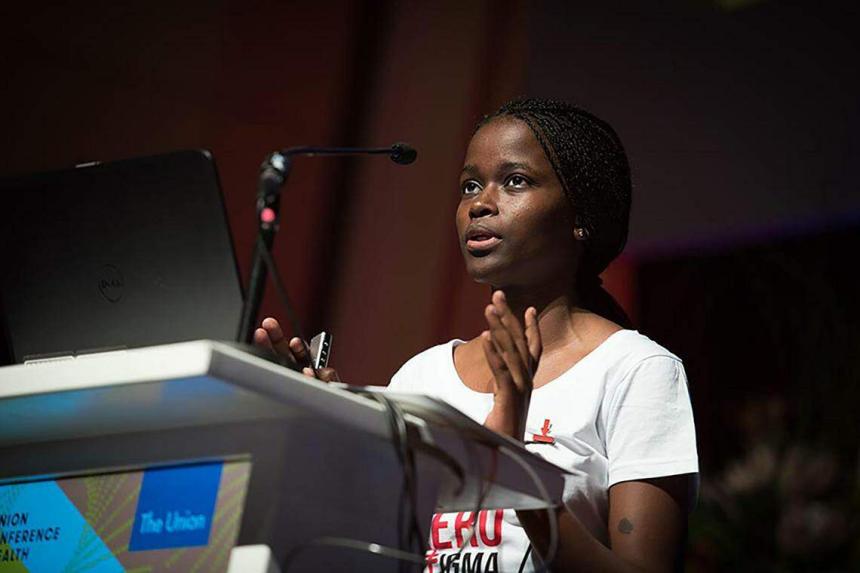BENGALURU - A critical medication for TB, or tuberculosis, will soon become more readily available and affordable for patients in India, and perhaps the world, after the Indian authorities rejected on March 23 a patent extension for the drug by US pharmaceutical giant Johnson & Johnson (J&J).
Other pharmaceutical companies in India will soon be able to make and sell generic versions of bedaquiline, which J&J sold under the brand name Sirturo for 20 years globally, and since 2015 in India. Its patent will expire in July 2023.
Some health experts estimate that with generic drugs available, the cost of treatment could fall by up to 70 per cent, from US$45 (S$60) per month per patient to just about US$8 to US$16.
The World Health Organisation (WHO) told The Straits Times in an e-mail that it welcomed the patent extension being turned down in India as it could potentially lower the drug’s cost and overcome access barriers.
There has been no official response from J&J on the development.
Behind this landmark government decision were TB survivors.
Indian journalist Nandita Venkatesan, 33, and South African activist Phumeza Tisile, 32, had filed a petition with the Indian Patent Office in 2019, supported by Medecins Sans Frontieres (MSF), or Doctors Without Borders.
Both have survived multidrug resistant tuberculosis (MDR-TB), and both totally lost their hearing from the side effects of injected drugs given daily for about 100 days. Their ordeal inspired them to turn into vocal advocates for affordable and safe TB treatment for all.
In Khayelitsha, South Africa, Ms Tisile had been diagnosed with an extremely drug-resistant TB (known as XDR-TB) when she was 19. She had to quit university in just four months, as the drugs and injections she was given made her “sicker than I already was”. Bedaquiline, an oral and more effective drug, “was out of reach and expensive” for her middle-class parents.
More than 322,000 new cases of TB are reported per year in South Africa, and it is a leading cause of death. After she went deaf, Ms Tisile began blogging in the MSF website, advocating for better, cheaper treatment.
In Mumbai, Ms Venkatesan was cured of TB in her intestine once, but was reinfected in May 2013, just as she started her job at a top business newspaper.
The drugs didn’t work and “it was a battle for life and death”, she said. She had to undergo six operations, became dangerously underweight, and she lost 90 per cent of her hearing.
“Four years of my life were lost completely,” she said, describing how her chartered accountant father had to work harder, and her teacher mother quit her job intermittently to care for her.
Both Ms Tisile and Ms Venkatesan now have cochlear implants, a device that improves hearing, funded by donations through global TB advocacy groups.

The two opposed the Johnson & Johnson patent extension arguing that the company was “evergreening” the existing patent, a practice where pharma companies hold on to monopoly production of medicines with slight tweaks to the formula.
“I understand from Johnson & Johnson’s point of view that companies need patenting for a period to recoup their research and development expenditure. But they’ve done this for 20 years, so why extend it?” asked Ms Venkatesan.
The Indian Patent Office considered their opposition along with another one filed in 2013 by the Network of Maharashtra People Living with HIV (NMP+). People with HIV are the most vulnerable to MDR-TB as their immunity is already compromised.
India accounts for almost a third of the 11 million TB cases worldwide. It has the highest burden of drug resistant TB too – about 40 per cent – disproportionately high even for the country’s population.
In 2021, India had over 1.9 million new and relapsed tuberculosis patients, including nearly 120,000 who are resistant to at least isoniazid and rifampin, the two most potent drugs used to treat the bacterial disease.
Tuberculosis killed more than 493,000 people in the country in 2021 – 13 per cent more than the previous year.
“Bedaquiline is the single most important, powerful, new anti-TB drug we have had in over four decades,” said Dr Madhukar Pai, associate director of the McGill International TB Centre in Montreal, Canada.
Although not free of side effects, bedaquiline has gained popularity because it is orally administered, improves treatment success of MDR-TB from 50 to 93 per cent, and shortens the length of treatment from two years to six months.
“The success of all-oral, six-month shorter regimes for drug-resistant TB rests on bedaquiline as the critical drug,” Dr Pai added.
India’s pharmaceuticals industry is the biggest producer of generic drugs globally. It was valued at US$24.53 billion in 2022. After July 2023, companies here can make bedaquiline too.
This will not only help India meet its ambitious goal to eradicate TB in the country by 2025, but also export to developing nations in South-east Asia and Africa.
“Generic versions of bedaquiline can now be manufactured in India and potentially supplied to all countries (following regulatory approval) where patents have not been granted, ensuring that more people can benefit from WHO-recommended short, all-oral regimens for drug-resistant-TB,” the WHO told ST.


